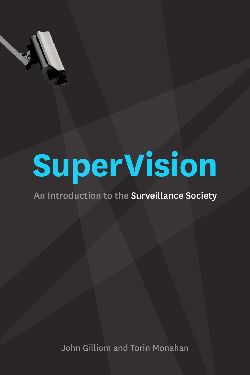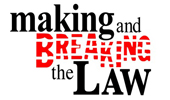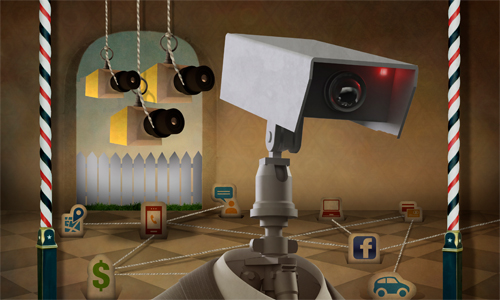First in a series of articles on our surveillance society.
Video cameras monitor the streets and sidewalks. Cell phones record locations and messages. Facebook postings share intimate information. Credit card transactions are logged and assessed. A visit to the ATM leaves a data trail. A police officer watches the intersection. A car’s onboard computers record location, performance, and driving practices.
A 10-minute errand exposes the typical person to many dimensions of surveillance. Normally they blur into the background of our daily lives—we’re usually too busy doing other things to pay attention to these often silent and invisible moments of supervision.
People are paying attention now.
John Gilliom and Torin Monahan’s book SuperVision: An Introduction to the Surveillance Society is just in time for the national dialogue on NSA leaks, drones on the border, and even the possibility of a national ID card. Gilliom is a Professor of Political Science and Associate Dean in the College of Arts and Sciences at Ohio University.
 Their definition of “a surveillance society” is broad. They write about everything from cells phones to drone aircraft, from Facebook to antiterrorism, from credit cards to Google searches. And if you’re “vaguely aware that Google keeps track of things but aren’t sure what they are,” here’s their unavoidable message: “Information societies are necessarily surveillance societies.”
Their definition of “a surveillance society” is broad. They write about everything from cells phones to drone aircraft, from Facebook to antiterrorism, from credit cards to Google searches. And if you’re “vaguely aware that Google keeps track of things but aren’t sure what they are,” here’s their unavoidable message: “Information societies are necessarily surveillance societies.”
And with surveillance comes power.
“Why do we call this a surveillance society? Because virtually all significant social, institutional, or business activities in our society now involve the systematic monitoring, gathering, and analysis of information in order to make decisions, minimize risk, sort populations, and exercise power. We define surveillance as monitoring people in order to regulate or govern their behavior.” They argue that the power of surveillance brings new modes of governance—from schools to workplaces to society at large.
The authors invite “a complete reimagining of social life” by providing “a crash course in the current practices of surveillance and a set of core questions that can guide the journey.”
“If you are one of the many people who say something like, ‘If you don’t do anything wrong, you don’t have anything to worry about,’’ say the authors, “we think you’ll have a different view when you finish this book. In the surveillance society, definitions of ‘wrong’ shift and vary and can include things like participating in political demonstrations, having poor health, losing your job, being young, getting old, being male, being female, or belonging to any racial or ethnic group on the planet.
Privacy is out of date.
“We can watch a couple of on-air personalities have a fiery debate about privacy, security, and Big Brother and convince ourselves we’ve done a good job at being informed citizens. We haven’t. There’s a lot more going on here.”
Watch the Forum for the next in a series of excerpts from SuperVision: An Introduction to the Surveillance Society, published by the University of Chicago Press.
Next in the series: 10 Things You Need to Know About Our Surveillance Society




















Comments